On September 18, the Ho Chi Minh City Investment and Trade Promotion Center (ITPC) coordinated with the Trade Representative Office of Rheinland-Pfalz State (Federal Republic of Germany) in Vietnam to organize a workshop on "Complying with import and export trade regulations under EVFTA to optimize costs and take advantage of tax incentives".
Speakers shared at the workshop. Photo: Organizing Committee
In the context of increasingly deep integration, the Vietnam - EU Free Trade Agreement (EVFTA) not only opens up many opportunities for tariff incentives for Vietnamese goods, but also sets strict requirements on rules of origin, technical standards, environment and social responsibility. Understanding and complying with these regulations will help businesses take advantage of incentives, optimize costs, reduce risks and enhance brand value in the international market.
At the workshop, Ms. Nguyen Thi Phuong, CEO of TradeComply Company, said that EVFTA brings great opportunities, strict compliance with new regulations is the key factor for Vietnamese enterprises to truly benefit and protect their position in the European market.
The EVFTA's commitment to eliminate nearly 99% of tariff lines within seven years will create a competitive advantage for key domestic industries such as textiles, footwear, wooden furniture, processed agricultural products and seafood, especially when the EU is Vietnam's third largest export market.
For example, the tax rate on shirts exported to Germany has been reduced from 12% to 0%, saving nearly 1 million USD for a shipment of 1 million shirts. Similarly, the tax rate on roasted coffee has been reduced from 7-11% to 0%, giving Vietnamese exporters a big competitive advantage over their counterparts from Brazil or Indonesia.
EVFTA is considered a “golden lever” for Vietnamese small and medium enterprises (SMEs), but this is only true when businesses comply with regulations.
A new wave of tough EU regulations is about to hit Vietnamese exporters directly. Starting in 2026, the border carbon adjustment mechanism (CBAM) will impose a carbon tax on imports such as iron and steel, cement, aluminum and fertilizers, requiring Vietnamese exporters in these sectors to report their CO 2 emissions .
In addition, the EU Deforestation Reduction Regulation (EUDR), which comes into force for SMEs from mid-2025, will require products such as coffee, timber and rubber to demonstrate deforestation-free origins, requiring effective traceability systems.
Garment products will benefit from the EVFTA when exported to Europe. In the photo: Export garment production at Nha Be Garment Company. Photo: NBC
EU importers are also increasingly demanding transparency in their supply chains regarding labor and environment in line with ESG standards and accountability regulations, and Vietnamese SMEs that fail to comply may be excluded from the supply chain.
To overcome this complex environment, Ms. Nguyen Thi Phuong emphasized, Vietnamese enterprises need to change their mindset. International trade is now not simply a matter of logistics and price, but the core is compliance with the regulations and standards of the import market. Proactive compliance is necessary to save costs, enhance negotiation ability and expand market share in the EU.
Ms. Phan Thuy My, Head of the Trade Representative Office of the state of Rheinland-Pfalz (Federal Republic of Germany) in Vietnam, said that the EU has updated its rules of origin, providing more flexibility for goods, especially for products with certificates of origin and priority sectors since January 1, 2025. These revised rules must be shown on the certificate of transport and the supplier's declaration.
The European Commission is also developing new digital systems, such as the ELAN system for agricultural products, to simplify customs procedures. Another new regulation is the Safety Declaration, which requires goods imported into the EU from non-EU countries to have this declaration and be submitted by the carrier.
In addition, the carbon border adjustment mechanism (CBAM) has required importers to report emissions data for high-carbon products such as steel, aluminum, cement and some chemicals from October 2023.
Ms. Phan Thuy My emphasized that when conducting business activities in Europe in general and Germany in particular, businesses should fully understand information and request support from the German Chamber of Industry and Commerce (IHK).
Source: https://hanoimoi.vn/doanh-nghiep-viet-can-lam-gi-de-tan-dung-toi-da-uu-dai-thue-tu-evfta-716463.html


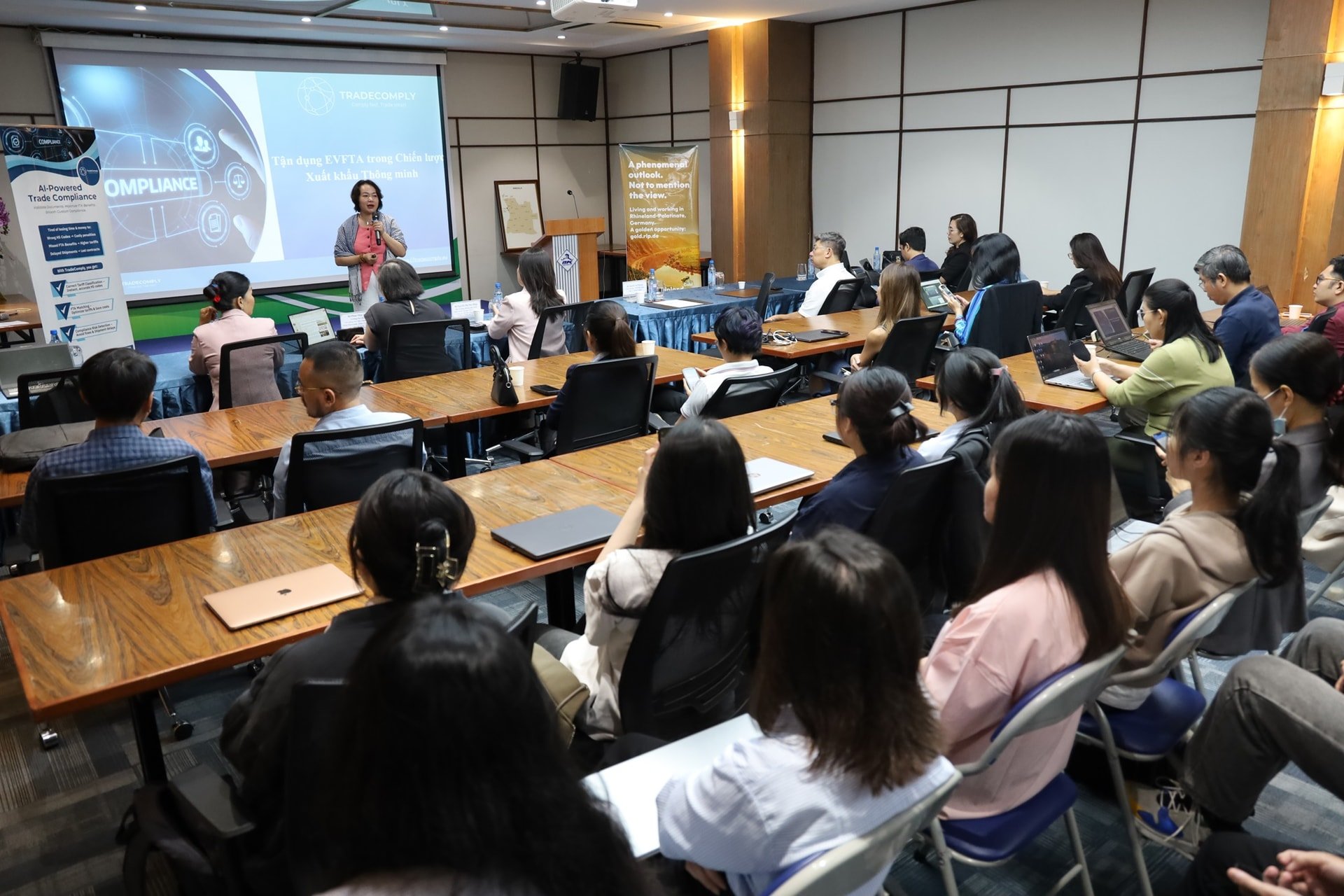
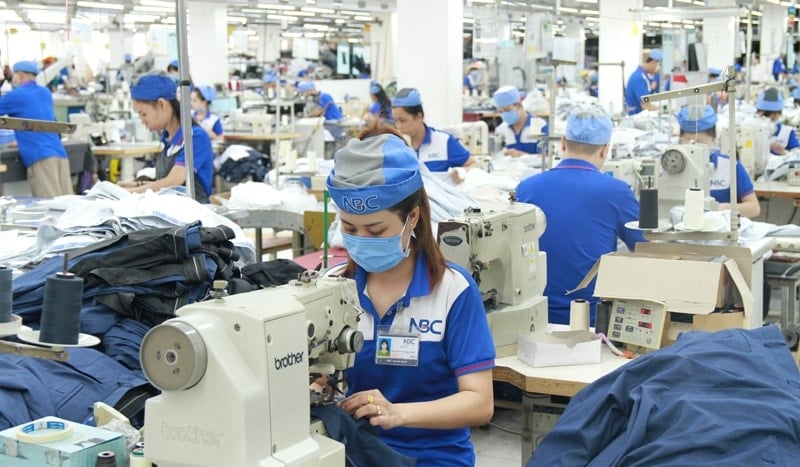










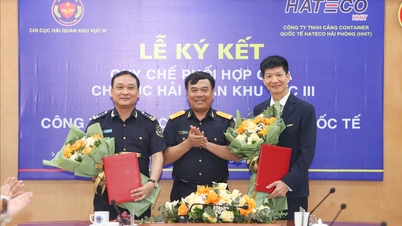



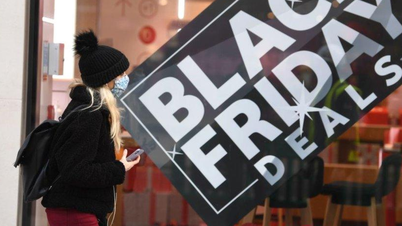
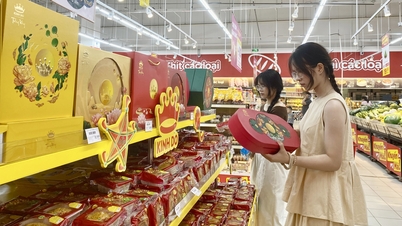

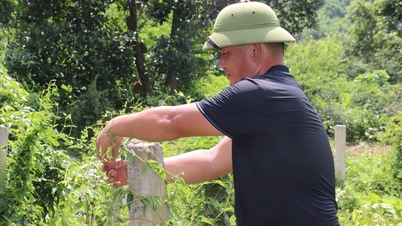
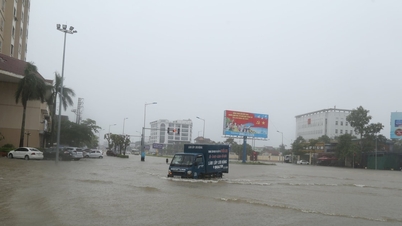

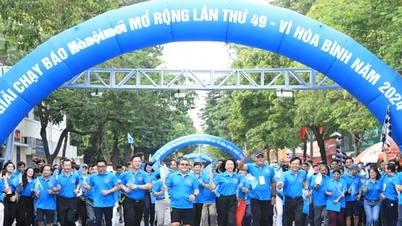









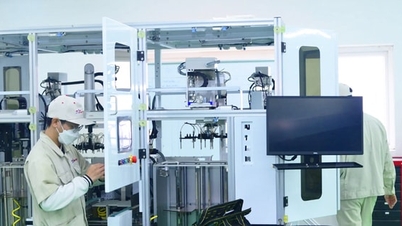
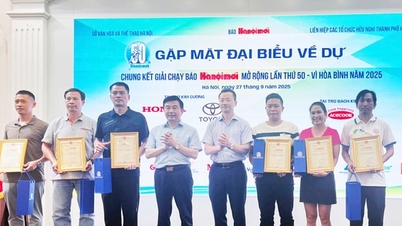
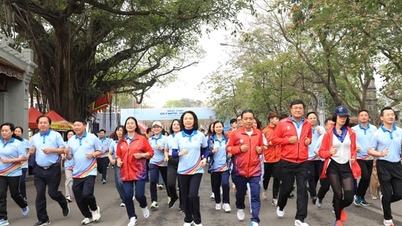




![[Photo] Soldiers guard the fire and protect the forest](https://vphoto.vietnam.vn/thumb/1200x675/vietnam/resource/IMAGE/2025/9/27/7cab6a2afcf543558a98f4d87e9aaf95)

























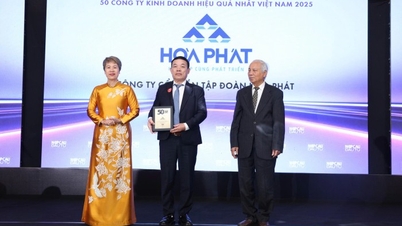






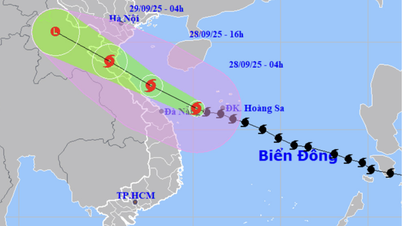


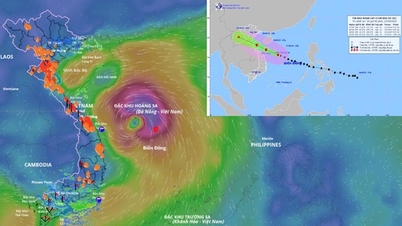






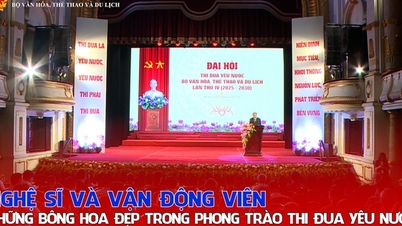


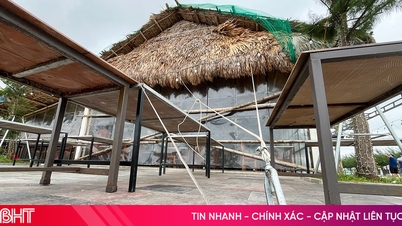
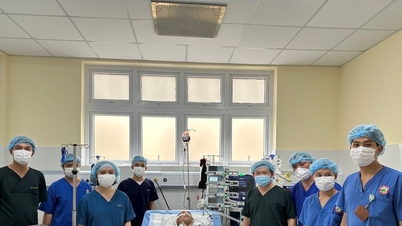



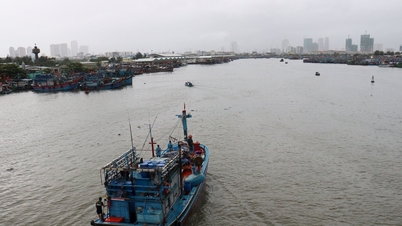




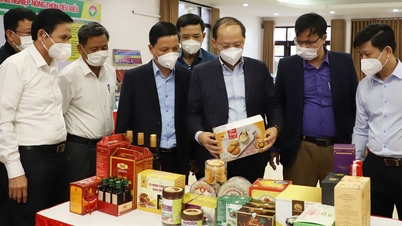










Comment (0)